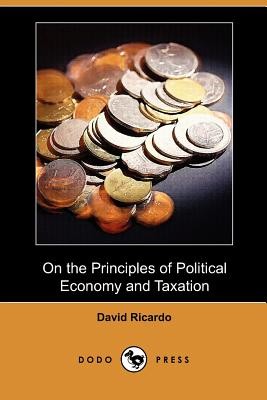
- We will send in 10–14 business days.
- Author: David Ricardo
- Publisher: Dodo Press
- ISBN-10: 1409993701
- ISBN-13: 9781409993704
- Format: 15.2 x 22.9 x 1.9 cm, minkšti viršeliai
- Language: English
- SAVE -10% with code: EXTRA
On the Principles of Political Economy and Taxation (Dodo Press) (e-book) (used book) | bookbook.eu
Reviews
Description
David Ricardo (1772-1823) was an English political economist, often credited with systematizing economics, and was one of the most influential of the classical economists. He was also a member of Parliament, businessman, financier and speculator. Perhaps his most important contribution was the theory of comparative advantage. He became interested in economics after reading Adam Smith's The Wealth of Nations in 1799. Ricardo's work with the stock exchange made him quite wealthy, which allowed him to retire from business in 1814. He is responsible for developing theories of rent, wages, and profits. Another idea associated with Ricardo is Ricardian equivalence. He was also an opponent of protectionism for national economies, especially for agriculture. He believed that the British "Corn Laws"-tariffs on agriculture products-ensured that less-productive domestic land would be harvested and rents would be driven up. His works include: The High Price of Bullion (1810) and On the Principles of Political Economy and Taxation (1817).
EXTRA 10 % discount with code: EXTRA
The promotion ends in 23d.13:46:33
The discount code is valid when purchasing from 10 €. Discounts do not stack.
- Author: David Ricardo
- Publisher: Dodo Press
- ISBN-10: 1409993701
- ISBN-13: 9781409993704
- Format: 15.2 x 22.9 x 1.9 cm, minkšti viršeliai
- Language: English English
David Ricardo (1772-1823) was an English political economist, often credited with systematizing economics, and was one of the most influential of the classical economists. He was also a member of Parliament, businessman, financier and speculator. Perhaps his most important contribution was the theory of comparative advantage. He became interested in economics after reading Adam Smith's The Wealth of Nations in 1799. Ricardo's work with the stock exchange made him quite wealthy, which allowed him to retire from business in 1814. He is responsible for developing theories of rent, wages, and profits. Another idea associated with Ricardo is Ricardian equivalence. He was also an opponent of protectionism for national economies, especially for agriculture. He believed that the British "Corn Laws"-tariffs on agriculture products-ensured that less-productive domestic land would be harvested and rents would be driven up. His works include: The High Price of Bullion (1810) and On the Principles of Political Economy and Taxation (1817).


Reviews